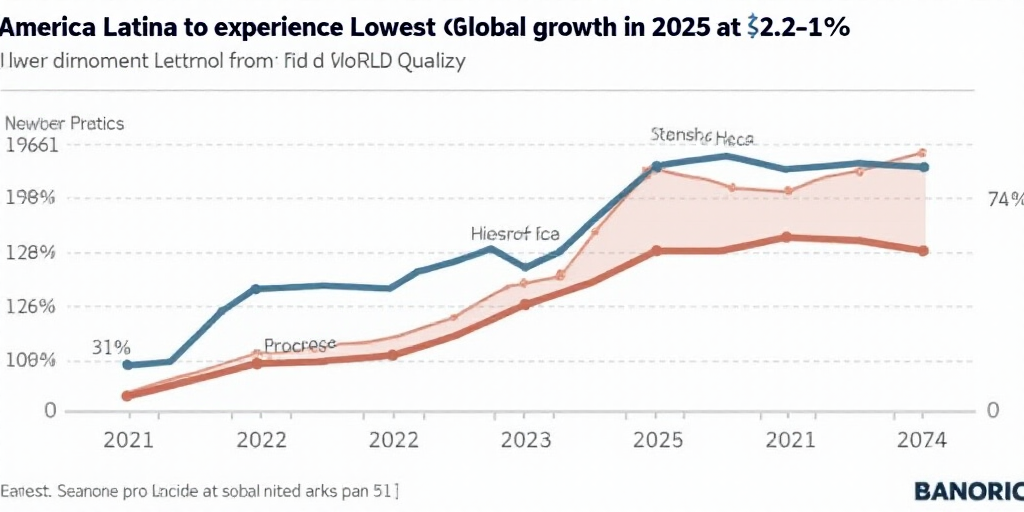Key Economic Insights and Trade Tensions
According to the World Bank (WB), America Latina is projected to have the lowest global growth rate in 2025, at a mere 2.1%. The WB attributes this sluggish growth to factors such as low investment, high debt levels, and global volatility.
Trade Tensions and Tariffs
The WB has expressed concern over rising trade tensions, sparked by tariffs imposed by US President Donald Trump. These tensions are hindering greater regional integration into the United States’ supply chains and jeopardizing jobs in export-related industries.
Regional Growth Projections
- Mexico: The WB anticipates a stagnant economy, rather than a contraction as predicted by the International Monetary Fund (IMF).
- Brazil: Projected growth of 1.8%
- Argentina: Anticipated growth of 5.5%
- Colombia: Projected growth of 2.4%
Diversification Efforts through International Agreements
In the face of these challenges, Mexico and the Mercosur bloc have signed agreements with the European Union, marking a step towards diversifying their markets. This strategic move aims to mitigate risks associated with trade tensions and economic slowdowns in individual countries.
Contextualizing the Situation
Carlos Felipe Jaramillo, Vice President for Latin America and the Caribbean at the World Bank, acknowledges the drastic changes in the global economic landscape. He highlights increased uncertainty as a defining characteristic of this new era.
Key Questions and Answers
- Q: What is the projected growth rate for America Latina in 2025 according to the World Bank?
A: The World Bank anticipates a growth rate of 2.1% for America Latina in 2025.
- Q: What factors are contributing to the slow growth in America Latina?
A: The World Bank attributes the sluggish growth to low investment, high debt levels, and global volatility.
- Q: How are trade tensions affecting America Latina’s economic prospects?
A: Rising trade tensions, fueled by tariffs imposed by the US, are hindering regional integration into US supply chains and threatening jobs in export-related industries.
- Q: What agreements have been signed by Mexico and Mercosur to counteract these challenges?
A: Mexico and Mercosur have signed agreements with the European Union to diversify their markets and mitigate risks associated with trade tensions.






